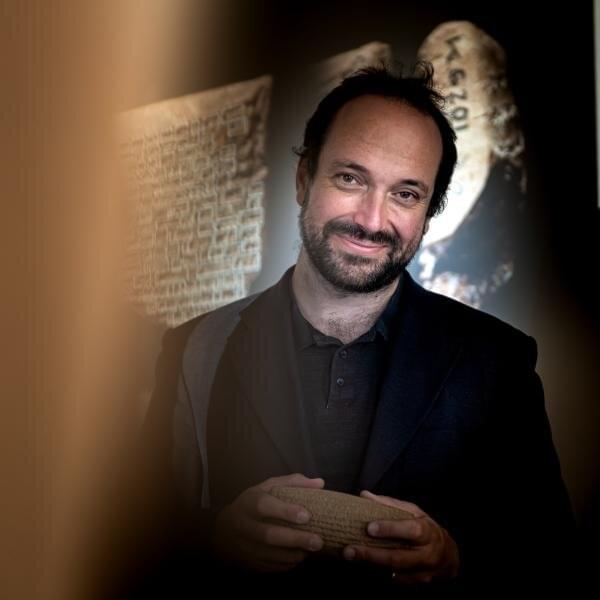How should we live when we know we must die? This question is posed by the first work of world literature, the Gilgamesh epic. More than 4,000 years ago, Gilgamesh set out on a quest for immortality. Like all Babylonian literature, the saga has survived only in fragments. Nevertheless, scholars have managed to bring two-thirds of the text into readable condition since it was rediscovered in the 19th century.
The Babylonians wrote in cuneiform characters on clay tablets, which have survived in the form of countless fragments. Over centuries, scholars transferred the characters imprinted on the pieces of clay onto paper. Then they would painstakingly compare their transcripts and—in the best case—recognize which fragments belong together and fill in the gaps. The texts were written in the languages Sumerian and Akkadian, which have complicated writing systems. This was a Sisyphean task, one that the experts in the Electronic Babylonian Literature project can scarcely imagine today.
Enrique Jiménez, Professor of Ancient Near Eastern Literatures at LMU’s Institute of Assyriology, and his team have been working on the digitization of all surviving cuneiform tablets since 2018. In that time, the project has processed as many as 22,000 text fragments.




